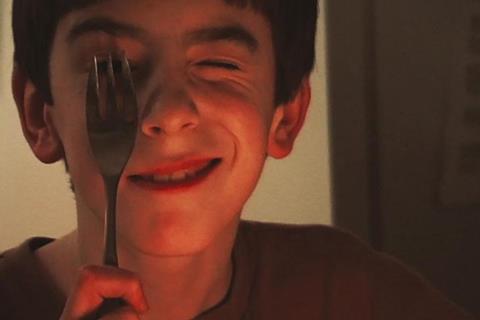The latest film from the ‘Sherman’s March’ director plays Stockholm and IDFA following its Venice premiere

Dir. Ross McElwee. US. 2025. 114mins
US documentarist Ross McElwee tells us that he has always filmed his family life “to make sense of the world”. But in his extraordinary new work, he strives to make sense of his own life, his family and his entire film-making career, with fearless and indeed distressing candour. In Remake, McElwee revisits the footage of a lifetime – both from his home life and his previous films – as he attempts to come to terms with the death of his adult son Adrian.
A richly rewarding experience
A complex, layered contemplation of grief, memory, family ties and the meaning of film-making as a profoundly personal activity, Remake is a richly rewarding experience – emotionally, narratively and philosophically. Premiered out of competition in Venice, where it won the Golden Globes Impact Prize for documentary, it now plays in Stockholm and IDFA, and calls out to be more widely seen as well as passionately discussed.
There are two strands to Remake, one of them intermittently comic. It involves a proposal McElwee receives to turn his 1986 film Sherman’s March – his breakthrough as a first-person documentarist – into a Hollywood fiction feature. This leads McElwee to replay some key sequences from that film, and to revisit some of its contributors – including his old friend, schoolteacher Charleen Swansea, an exuberantly no-bullshit woman seen in 1986 upbraiding McElwee for lacking passion, telling him to turn off his camera: “This isn’t art, this is life!” Years later, Swansea, now with dementia, tells McElwee that she can’t remember appearing in his film, nor her own teaching career.
The late Swansea is one of the two dedicatees of Remake, the other being Adrian McElwee, who died aged 27 seven years before Remake’s voice-over narrative begins. Filmed throughout his life, from his very earliest years, Adrian was a constant presence and sometimes collaborator in his father’s work. Remake collates moments from his entire life, but it is hard to reconcile the furiously imaginative, joyously creative pre-teen Adrian with the depressed, troubled young man of his later years. The film’s last 40 minutes present a sober, matter-of-fact account of his depression, struggle with heroin addiction and finally, fatal relapse just when his life seemed on the upturn.
Editing with long-term Werner Herzog collaborator Joe Bini, McElwee weaves Adrian’s story into a characteristically digressive structure. The film features other members of McElwee’s family – adopted daughter Maria, former wife Marilyn Levine – and shows the director facing resistance from them when they eventually weary of his camera. Post-divorce, McElwee gets together with fellow film-maker Hyun Kung Kim; she is happy to be filmed, as long as he doesn’t show her face.
Clips from earlier McElwee films – including his last two, In Paraguay (2008) and Photographic Memory (2011) – are repurposed here, along with ample footage shot by Adrian himself during his enthusiastic but unfocused attempts to start his own career as a film-maker and multimedia creator. Adrian is seen attending festivals with his father, notably participating in a Venice press conference – but McElwee Sr ends up wondering whether Adrian’s lifelong exposure to the camera, and eventually to the festival limelight, has contributed to his difficulties.
Indeed, one of the most painful and incisive aspects of Remake is the way in which McElwee is forced to ask himself whether his intensely committed project of decades has in fact been damaging to himself and those around him – or indeed futile. And the film inevitably raises the question of whether diary-style film-making, inevitably involving others, can be seen not only as honest but potentially as exploitative, even abusive.
McElwee fans have long treasured both his rambling associative style and the characteristically lugubrious monotone of his voice-over style – which here registers as profoundly sorrowful, although deadpan humour does emerge. And love resonates throughout – for Adrian and for the people McElwee has known throughout his life. Here, Charleen Swansea is foremost among them. Her own late-life condition chimes with the theme of cinema’s capacity to preserve memory, while her warning to McElwee decades ago about life and art opens up a theme that resonates powerfully through Remake: the question of whether a life lived with a camera constantly in hand risks distorting, even damaging that life - or whether it can aspire to truly reveal it in all its contradictions.
Production company: Giant Squid Films
International sales: Cinetic Media jason@cineticmedia.com
Producers: Mark Meatto, Ross McElwee
Screenplay: Ross McElwee
Cinematography: Ross McElwee, Adrian McElwee
Editors: Ross McElwee, Joe Bini
























